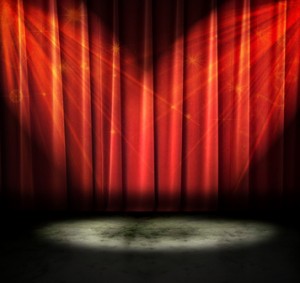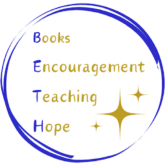 One of my favorite quotes about the arts is one from an interview with Katherine Anne Porter in The Paris Review. It is about the influence and impact of the arts in general, but also, I believe, speaks to the importance of the arts in children’s lives as well as the lives of adults.
One of my favorite quotes about the arts is one from an interview with Katherine Anne Porter in The Paris Review. It is about the influence and impact of the arts in general, but also, I believe, speaks to the importance of the arts in children’s lives as well as the lives of adults.
“Human life itself may be almost pure chaos, but the work of the artist is to take these handfuls of confusion and disparate things, things that seem to be irreconcilable, and put them together in a frame to give them some kind of shape and meaning.”
The arts can help children take the many things they are learning, and give them a framework. The arts have even been proven to help children learn in other areas of their lives as well. An article at “edutopia” entitled Why Arts Education is Crucial, and Who’s Doing it Best states that “Involvement in the arts is associated with gains in math, reading, cognitive ability, critical thinking, and verbal skill. Arts learning can also improve motivation, concentration, confidence, and teamwork.” If I needed a further reason to champion the arts, this would do it.
For this In the Spotlight week, as Behind the Scenes month concludes, we’re going behind the scenes of some symphony orchestras — not to see how they tune their instruments, or how long they rehearse, but to see how they are working to enhance the educational experience of children who otherwise would have very little exposure to symphony music.
I want to introduce you to three very different Symphony Orchestras with different projects but a common goal — to enhance the lives and the education of children through music.
The first is the Piapot Project of the Regina Symphony Orchestra. Payepot School is a small school on a First Nations (Native Canadian) reserve near Regina, Saskatchewan, Canada. The Piapot Project, a new initiative of the Regina Symphony (RSO) is providing violin lessons for some of the children of the school — taught by the RSO’s current concertmaster; attendance at symphony concerts including interaction with the musicians, and a special Piapot Festival in May. I have no doubt that this is enhancing the entire life experience of these children.
The second, El Sistema, is sending soundwaves out from the far reaches of Venezuela where it began, into the world to touch the lives of children and youth in North America and elsewhere. Quoting from the El Sistema USA website, “33 years ago in a parking garage in Caracas, Dr. José Antonio Abreu gathered together 11 children to play music. El Sistema was born. It now teaches music to 300,000 of Venezuela’s poorest children, demonstrating the power of ensemble music to dramatically change the life trajectory of hundreds of thousands of a nation’s youth while transforming the communities around them.” And, in another quote from the same website, about the program in Venezuela, “El Sistema’s primary focus is to create a daily haven of safety, joy and fun that builds every child’s self-esteem and sense of value.”
The conductor of the Los Angeles Philharmonic, Gustavo Dudamel, a Venezuelan, is both a product of El Sistema, and was an integral part of its development. His appointment to the LAPhil has heightened awareness of this incredible program — or should I say movement. El Sistema has a presence and an influence in kids’ lives in over 25 countries around the world, including my own country, Canada. If you are interested, a simple search of the words el sistema and your country’s name will tell you if the movement has reached your homeland.
The third symphony project I want to highlight is the Music in the Schools program of the Minnesota Sinfonia, based in the Twin Cities, Minneapolis – St. Paul. The Sinfonia is unique in that it is a professional symphony orchestra which offers all its concerts free to anyone who wishes to attend, choosing venues that are accessible to a wide range of people. The Music in the Schools program not only takes music to kids in inner city schools, but uses music to teach subjects as wide ranging as literature, math and science, in a specifically designed curriculum.
I don’t want to go into too much detail about Music in the Schools today, because on Wednesday I am honored to have as an interview guest the Artistic Director of the Minnesota Sinfonia, Jay Fishman. Please join me on Wednesday to learn more about this fantastic program!

What wonderful programs! And I completely agree about the importance of the arts. Your mention above of the importance of the arts in education made me think of this: have you ever heard Sir Ken Robinson speak? http://www.ted.com/talks/lang/en/ken_robinson_says_schools_kill_creativity.html When you have a minute, check it out! You will love it, and it’s really fascinating. Let me know what you think!
Ooooh, thank you for that link. I will listen to it a.s.a.p. and get back to you.
It often puzzled me, growing up, seeing the arts take the ax first whenever budgets had to be cut. The arts offered such an array of talent outlet that it seemed behooving to remove them from the school, leaving children with the basics. Sort of like removing the colors from the rainbow and leaving just the basic black and while. The arts are so wonderful and it’s great to see programs developed to expose children where they wouldn’t get a chance otherwise.
“Sort of like removing the colors from the rainbow and leaving just the basic black and white.” What a PERFECT way to express it. Thank you!
I have to agree with Angela, any educational body that axes and cuts the arts is shortsighted and hasn’t understood it’s intrinsic place in the development of every child. Great to see you highlighting some great school music projects here, Beth. I know for example that the Vienna Opera house offers almost free tickets to school children in the city. Isn’t that wonderful?
I agree with you as well. Bravo to the Vienna Opera House! Thank you for telling me about them. Off to google I must go…
Very nice post Beth. I loved learning about the three programs, particularly El Sistema. What a wonderful way to open children to a love of music. I believe that music would impact cognition, verbal skills, confidence and so on. There is so much crossing over of the brain. I know our orchestra has a free Music in the Schools program, as well as a youth orchestra. Really liked your post.
Was thinking about you yesterday, and wondered if you would be doing anything on music as a therapeutic tool and for healing. I have a friend who plays the harp in nursing homes, and she’s present many times at the end of life. But, I know music is healing for so many people and there are camps for kids where music is used for healing purposes. But, that’s all I know.
Thank you, Pat. I’m glad to hear that your orchestra also has a Music in the Schools program — such a great way to reach out and enrich kids’ lives.
Music therapy — what a great focus! Hmmm…you’ve got my mind going for a way to fit that in somewhere. I have a feeling that August just became therapy month.
Hi Beth
You visited my blog in February, when it was undergoing a bit of a reconstruction and you enquired about subscription widgets, which were not installed at that time.. This is a follow-up to let you know that I have installed the Networked Blog Widget, as well as suscription by e-mail.
Your post resonated with me! What a co-incidence!
My field is music/entertainment/education… and part of my work is tutoring music – at school (class music & choirs) as well as offering private, after-hours, individual piano/voice tuition. I also get involved in various community entertainment programmes which are educational in nature… it’s called EDUTAINMENT.
To cut a long story short, I arranged for the local Philharmonic orchestra to stage a free performance at my school – and what an experience for the kids! It was a treat just to study the expression on their faces whilst they viewed the performance.
I’m going to follow your blog (once I work out how to operate the networked blogs widget… I’m tech-challenged and my tech guy does everything for me… besides blogging…)
Hi, Michelle — thanks for alerting me to look for your comment. Sometimes things get swallowed that should have been posted. Glad you were alert.
Wonderful to hear about the Philharmonic orchestra performance at your school! That’s such a good thing to do for the kids.
Now I’ll head back to your blog!
I agree that it is important that kids get to learn about music. Our scool does a little bit but not a lot. I liked learning to read music. I am going to look at the links you have 🙂
Thanks, Erik. I think a lot of schools could do more with music without taking away from other things.